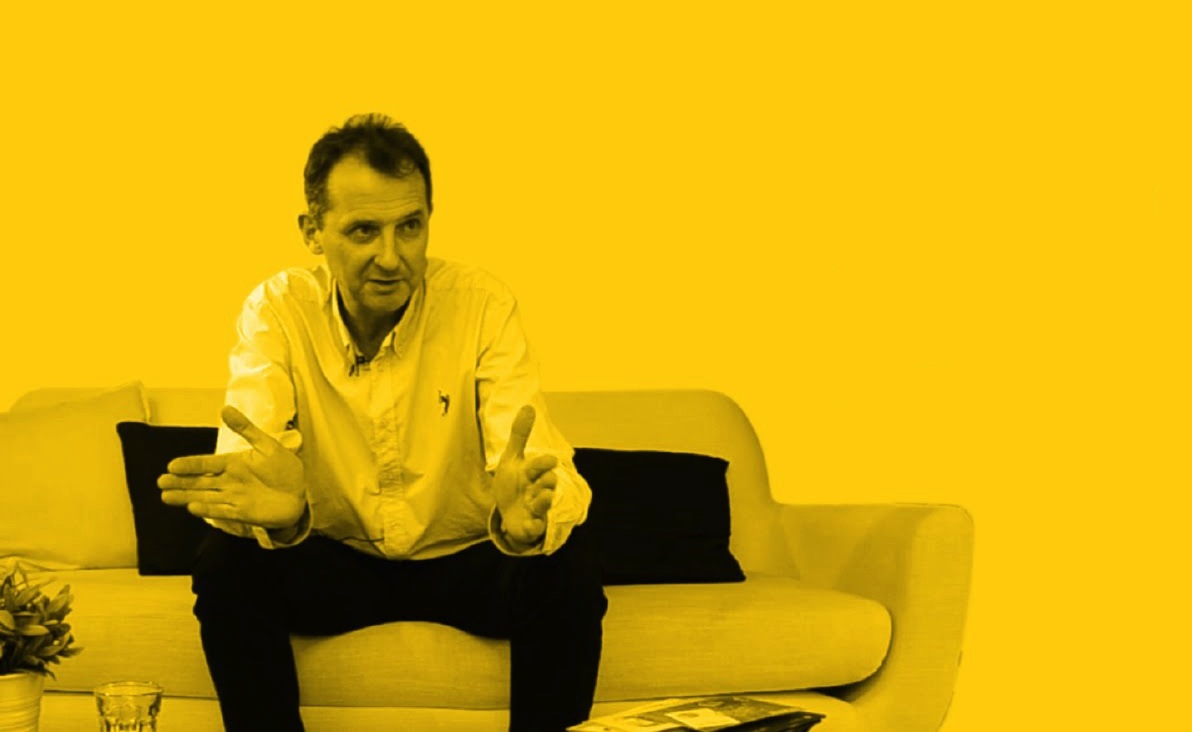Will Awdry: The Award Winning Advertising Guru To Train Egypt's Creative Talents
Ahead of Kemet and D&AD's intensive three-day workshops at The Greek Campus, industry expert Will Awdry, who will be leading a course on Writing for Advertising, chats with us about communication, connectivity, and the age old art/commerce question.

Kemet - which was actually Egypt's name during its early Ancient period, meaning ‘black land,’ symbolising fertility and creation - is where internationally renowned cultural and educational professionals meet, in this newly established social enterprise, with all its supporting activities and endeavours in creative industries. This year, Kemet is teaming up with Britain’s non-for-profit organisation, D&AD, which since the 1960s has celebrated and supported artists and designers. They're pooling together to provide three-day intensive workshops, such as The Art of Direction, Presenting Creative Work, Portfolio Critique, and Briefing Your Creative Team. With Kemet's support, the workshops will be coming all the away from London to Cairo and happening at The GrEEK Campus. Luckily, we got the chance to talk a little about the project with Will Awdry, who will be coaching the Writing For Advertising workshop. Awdry is the creative director at design and brand consultancy Big Fish, and has been coaching D&AD’s Writing For Advertising since 2002. In Egypt, work produced by his teams has run for Unilever’s Knorr and Dove, Audi, and Nestle, among others.
Do you think that participants need to have some sort of a talent as a starting point to taking the workshops, which they can hone through the sessions, or is it only a question of interest?
Actually, participation is the critical word, more so than talent. People could just listen during the workshop but you’ll benefit far more if you take part. That means writing, thinking, developing your own responses; subjective involvement is what drives home any helpful learning. There are exercises throughout the day. Everyone is encouraged to have a go. Unsurprisingly, it does also help to have some writing skills, an interest and enthusiasm for the subject. As it’s a workshop, it also helps to be prepared to present any exercise work and talk around the topics, but you won’t be judged on this. Overall, by ‘leaning’ in to the writing day, candidates will take more away from it.
Some of these workshops turn the skills learnt into ‘workable’ ones that can generate income (such as copywriting). Do you think this will add to the future psychological well-being of the participants (when making a living from what they love) or would that be making art more ‘commercial’?
The art/commerce question is a long-running debate. The general consensus is that advertising is a science, not an art, but that there is an art to it. (The English language allows much room for qualification!) Writing persuasively and convincingly requires commitment. If you work hard, to a positive result, you should definitely feel good about it. Honestly, I’m not sure one can guarantee income generation as an outcome of the workshop. It depends on how the lessons are used. The element of unpredictability remains, but that’s what makes the skill of writing for advertising so much more precious. Generally speaking, the more you practise, the better you’ll get.
Do you think that those who are not quite tech-savvy are going to feel left out from the workshops?
If that was the case, I would have failed significantly. People notice the railway engine rather than the tracks along which it runs. In communication, think of the engine as the message, the argument, the ambition of the idea – that’s what the Writing For Advertising workout is about, not the technical pathways.
How do you intend on levelling the playing field for all session participants?
The people who attend the workshop will work hard but they are not AT work. They are not being judged and nor will I be reporting back to their employers – only they will. Writing is not, conventionally, a group activity, so it’s important to de-risk the room, break down impediments to understanding on all sides, and keep the level of interaction high. The best workshops are about collaboration and contribution, not competition and judgement. So, for example, I work on the basis that there is no such thing as a wrong answer – more that there can sometimes be a different, or better answer.
What is new about Kemet’S D&AD workshops? What new value does it offer to participants?
Whilst my specialism is writing in - and for – advertising, the D&AD offer is about each craft skill set in the context of overall commercial communication. I certainly wouldn’t claim to be offering the ‘best course there is’, but after 15 years of positive reports from candidates, I have been able to refine and adapt the content in line with what people find most useful. Delivering this to an audience in Cairo will create its own challenges. I have reasonable experience having managed international brands on a global level for twenty years. It may be that it becomes a little more about the general than the specific, given cultural nuances.
How are the workshops going to reshape Egyptians’ interaction with the digital work and their contribution to it?
It’s more about how it will first reshape their view of communication and connectivity with their audience which can then be transposed to digital. The analogue/digital division is no longer really relevant or helpful. The crucial question for an advertiser is how effectively the idea, message or story be landed in the minds of the audience. The one, important extra element in digital channels is acknowledging that communication is two way – the audience now has right of reply and that audience can also switch you off very, very easily. You have to write accordingly.
What is the entry level of the workshops? Are they introductory courses or more professional ones? Are there criteria for selecting potential participants?
The workshop has seen people with very different levels of experience, from lifetime copywriters to students. It has also benefitted clients and other disciplines within advertising. However, the centre of gravity is focused on copywriters who are two to eight years into their careers.
Given that most instructors are foreigners, do you think that that they will be able to make the content of the workshops relevant for the participants or would that not be relevant?
There are some universal truths about communication, the currency of ideas and what motivates people. Humbly, I would not presume to claim specific cultural relevance – that would be arrogant in the extreme. I would hope that there are more principles and learning from the D&AD Writing For Advertising Workshop that participants can transliterate into their day to day occupations to be of greatest usefulness.
- Previous Article 15 Egyptians Who Made it on Arabian Business’ 100 Under 40 List
- Next Article 9 Of The Coolest Things From Maker Faire 2016
























